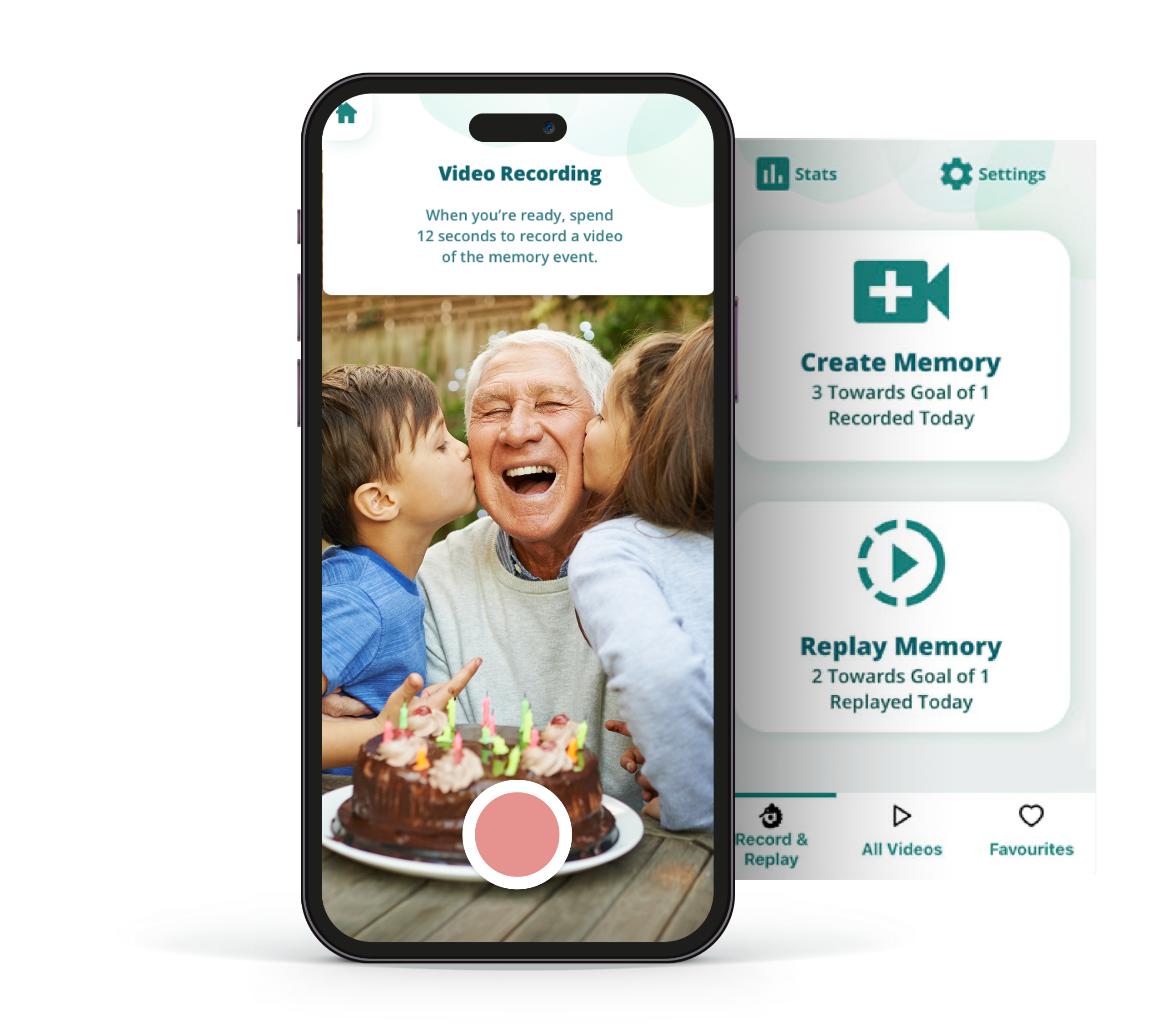HippoCamera
Improving memory for people with cognitive impairment
HippoCamera is an evidence-based mobile app that improves recall in people with mild cognitive impairment using principles from memory science.

Creating an intuitive digital health app to help people remember important life events
University of Toronto neuroscientist Dr. Morgan Barense chose Tactica to create the HippoCamera app to help improve the lives of people experiencing memory impairment. The innovative app mimics the function of the brain’s hippocampus that is compromised in conditions like Alzheimer’s disease. Dr. Barense’s award-winning team, specializing in memory, neuroscience, and digital health had developed a proof-of-concept prototype but needed to find an expert team of app developers to take this important research to the next level. They wanted an app that was scalable, secure, and most importantly delivered a user experience that considered the unique needs of their cognitively compromised users – if the app was confusing, people wouldn’t benefit.
Translating detailed scientific research into a practical and secure solution
Tactica took on the challenge of redeveloping the prototype to improve the app’s design, scalability, performance, data collection, and security. Starting with a user experience (UX) audit, Tactica redefined the core user experience allowing users to easily record and revisit important life moments. Tactica collaborated with the research team to refine and implement the core algorithm that supports forming long-term memories so users could retain meaningful life events. A robust control panel was developed to give researchers the ability to adjust parameters of the core algorithm themselves, including creating study participants, cohorts, and downloading secure study data.
Delivering measurable results and the foundation for future commercial successes
Researchers conducted two experiments with older adults finding that using HippoCamera led to large and long-lasting benefits in the recollection of event-specific details – ranging from 56% to 84%. Further, functional neuroimaging of brains showed that replaying memory cues increased the differentiation of activity patterns in the hippocampus. The new app proved three times more effective for preserving memories than recording and replaying regular videos, enabling its users to achieve a 47% increase in memory recall. The success of the app helped lay the foundation for the research team to build their startup, Dynamic Memory Solutions Inc, with a mission to help improve the quality of life for dementia sufferers and their families around the world.



 Smartphone App Can Significantly Improve Memory Recall
Smartphone App Can Significantly Improve Memory Recall